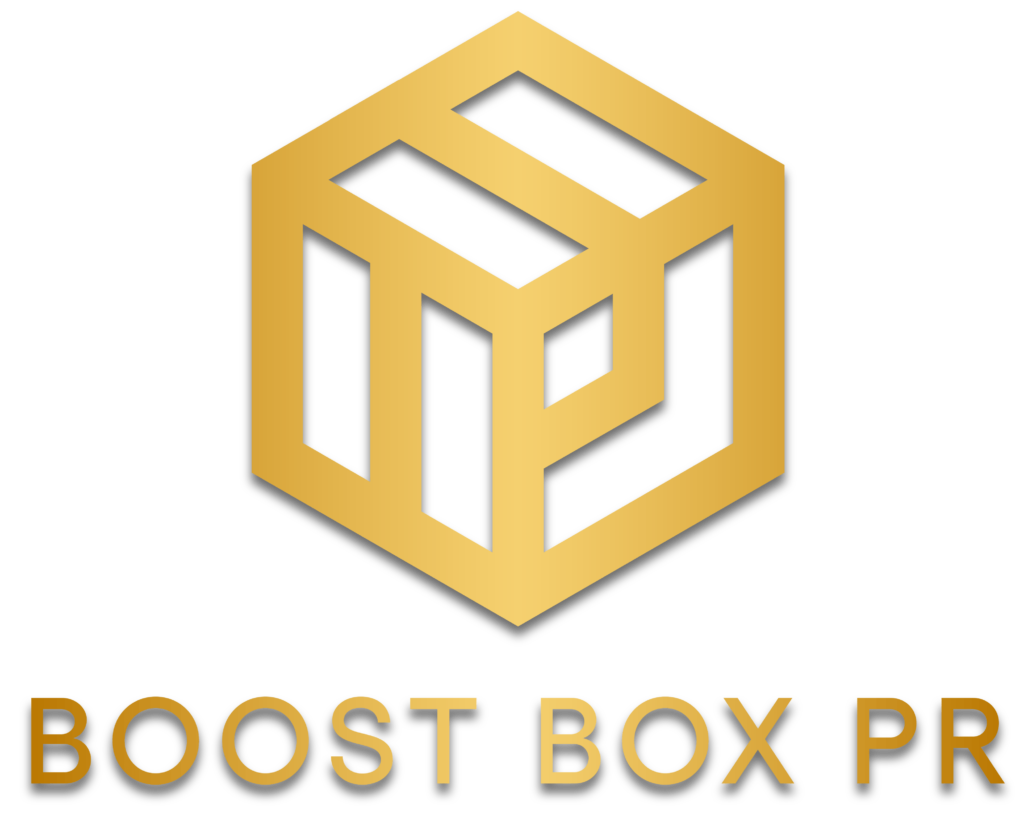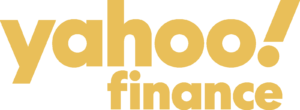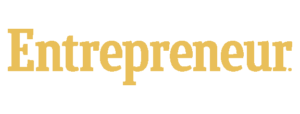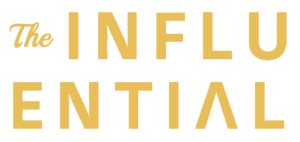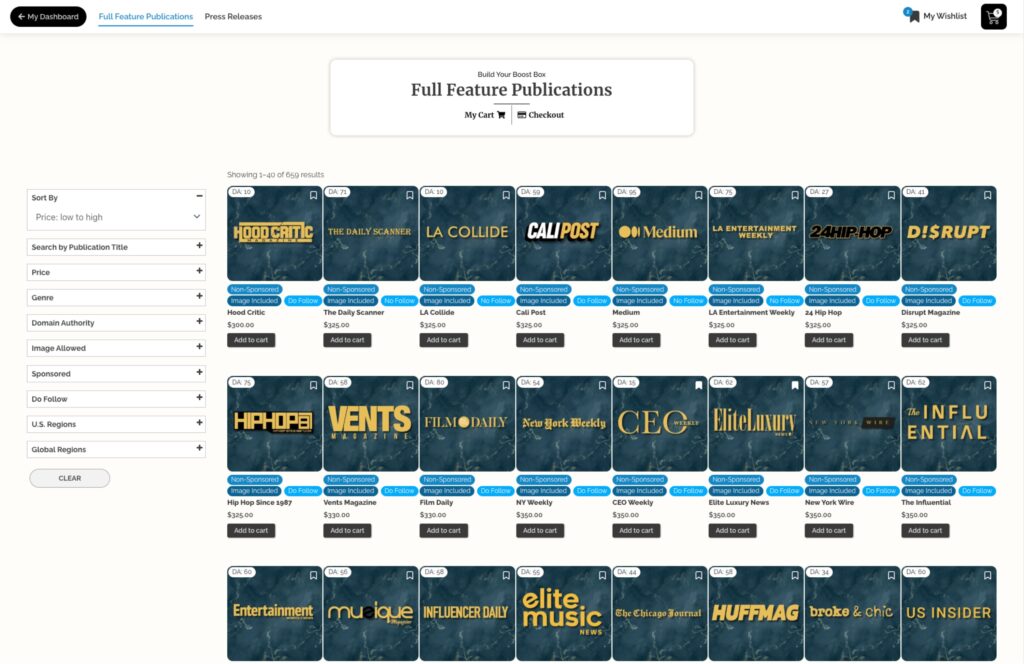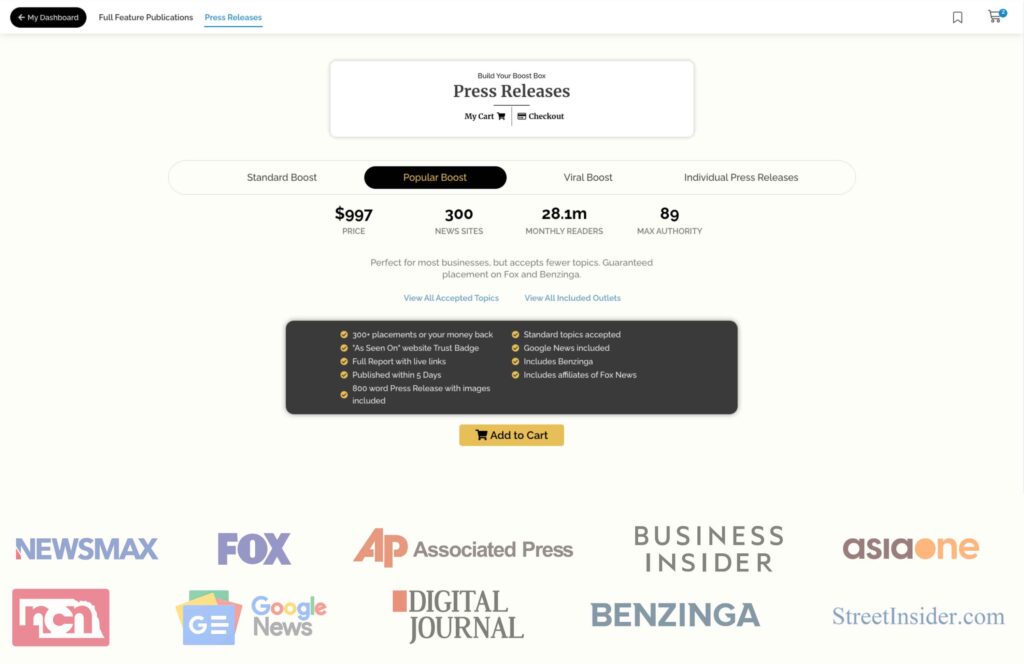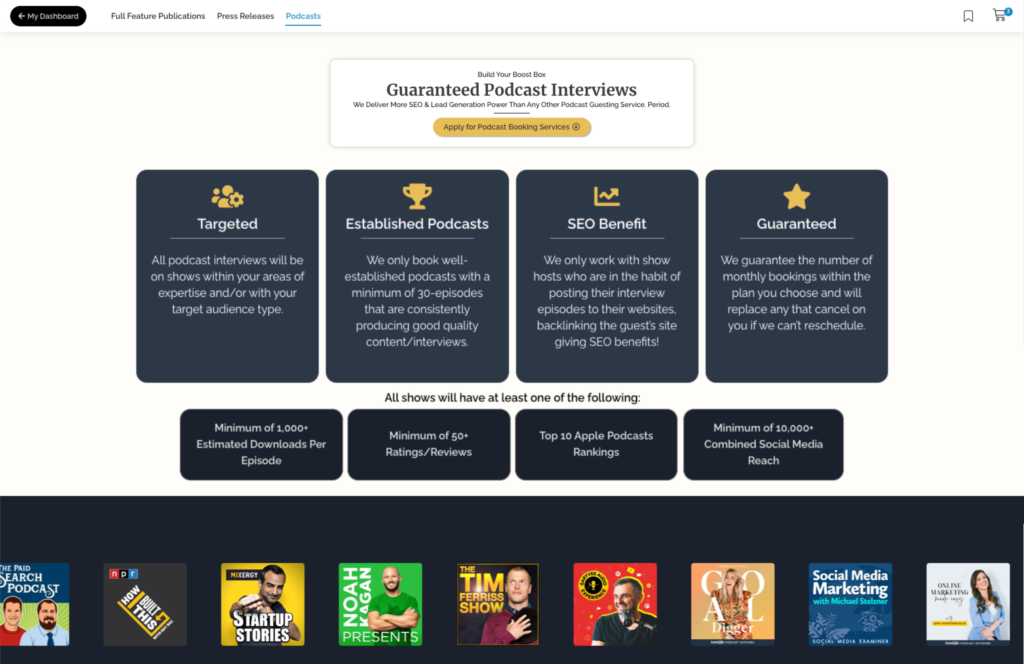The popularity of podcasts has skyrocketed in recent years. Worldwide, podcast listeners now exceed 464.7 million, projected to reach half a billion by the end of this year.
Both listeners and advertisers can benefit greatly from these unique and efficient mediums. This give company decision-makers a great chance to reach their target audiences, promote their brands, and establish themselves as thought leaders.
PR podcasts cater to various topics and businesses, making it a great medium for those who are often on the go, have a lot on their minds, and love to learn.
While podcasts like Jay Shetty Podcasts and A Better You Podcast have amassed millions of listeners, very few have achieved the same degree of success. Actually, a few hundred people may subscribe to a typical podcast. And getting a regular guest role on a podcast with such a large audience is something only a few professionals are likely to be able to do.
Even while some podcasts have hundreds of thousands of listeners, those with smaller, more targeted audiences may still do the trick if they attract the customers you’re looking for.
So, why are PR podcasts important for your business?
1. Media Warm-up
Executives with little to no media experience would benefit greatly from practicing on a podcast with a small audience before tackling more popular publications and interviews. The speaker is free to experiment with answers and important messages since most PR podcasts are formatted in a conversational tone. In this way, the visitor may see what the audience finds interesting and adjust their answers accordingly for similar possibilities in the future. Practice makes perfect, so keep that in mind!
Since the medium is informal and conversational, you may try several ways of addressing important subjects to find out what people respond to. When done well, an interview on a podcast with a smaller audience may be a springboard to pitches to bigger podcasts or news sites.
If done properly, PR podcasts interviews are a powerful tool for outreach; however, you must exercise caution when choosing your targets, prepare the necessary time, and inform your customers and prospects about any podcast interviews you undertake.
2. PR Podcasts are a Business Asset
Podcasts may help spread the word about your company in addition to more conventional methods of publicity like press releases, news articles, and social media. Thanks to the explosive expansion of the medium, industry executives and authorities have used podcasts as a news-collecting tool. During podcast interviews, they often share and analyze trends, announcements, and forecasts.
You may use podcast interviews in different ways. Your debut on the podcast is only the beginning, even if the first viewership is modest. Posting the podcast link on your web page or social networks, including it in a newsletter, or sending it to a prospect will greatly increase the viewership after it airs.
3. Prove Your Expertise
If you’re an expert in your field, doing podcast interviews is a great way to establish yourself and your business as a leader in the industry. Podcast interviews allow you to demonstrate your expertise in certain fields and subjects. Anyone looking to stay abreast of developments in their field or pick up some pointers for their work could give it a listen.
Sharing the podcast recordings on other marketing platforms can also allow you and your business to capitalize on it. Your reputation can be developed by maintaining an ongoing connection with the podcast hosts and participating several times. This will allow you to refer to previous conversations and debates. Returning to a podcast allows you to hone in on significant developments in the company, such as growth, expansion, or changes in leadership—thereby broadening your influence.
In 2024, including PR podcasts interviews in your outreach strategy will reap rewards for both you and the company. If you want to enjoy the benefits of podcasts, you must do it well. That means being smart about which podcasts to target, spending enough time preparing, and spreading the news via social media, corporate websites, or word of mouth.
4. Audience Relationships
Podcasts excel at giving listeners the impression that they are witnessing things from behind the scenes, which many people prefer.
The human element in you and your company will shine through in live podcast recordings —the fumbled phrases and hilarious moments. They will make you more relatable and popular with your audience.
Thought leaders and industry organizations routinely host podcasts. If you are attempting to reach a certain demographic, these industry-specific podcasts interviews may be a fantastic opportunity due to their smaller, more targeted viewership.
Achieving Success with Your Podcast
PR Agencies use a mix of monitoring methods and data in order to gauge the efficacy and influence of PR podcast placements – such as monthly listens, estimated listens to new episodes, social media connections, and listeners’ demographic and psychographic composition.
After a podcast goes live, public relations teams monitor the host’s and the show’s social media accounts to see what they post and then work to boost coverage across all of the company’s platforms. To get the most out of your future PR podcast research and pitching endeavors, it is wise to keep note of all references since further coverage may emerge in the days and weeks after the episode’s broadcast.
Bottom Line
If you do a few podcast interviews and then stop, it can seem worse than if you never got interviewed at all. Much like any other social or marketing campaign, consistency is crucial when it comes to podcast interviews. What you put into a podcast interview is what makes it successful in the end. Storytelling, interactions, and subjects people are eager to learn about are certain ways to make a great impression.
If you’re interested in us getting you guaranteed podcast interviews every single month and advertising your business using the latest techniques, Boost Box PR can help your company. As a PR agency, we help you use the expanding podcast industry as a proactive marketing tool.
